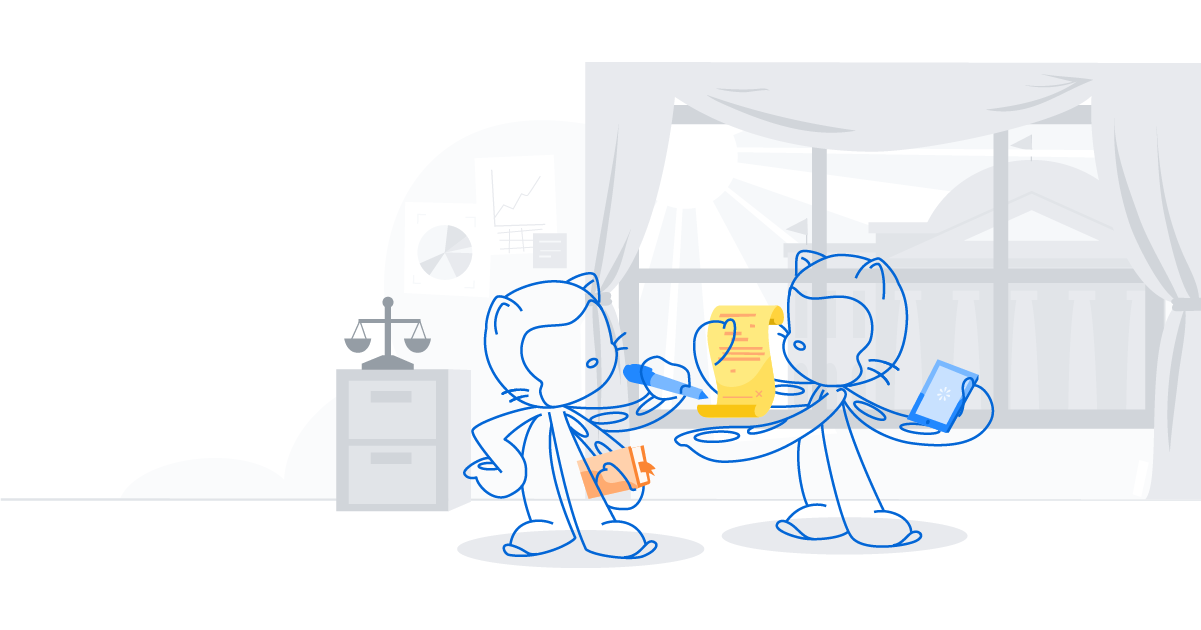Developer collaboration is a form of assembly and association and Special Rapporteur Clément Voule, the United Nations’ expert on those rights, is looking into how they apply online. He’s conducting this research in preparation for a report he’s presenting to the United Nations Human Rights Council for its adoption in June—and we’re contributing to it.
A different human rights expert (David Kaye) visited us last year—and another one this year (Harlem Désir)—to discuss online content moderation in relation to the right to free expression. Special Rapporteur Voule’s report on free assembly and association is distinct, but it complements that work and recognizes the relationship between different rights.
Special Rapporteur Voule visited our office in San Francisco to talk about how collaboration on GitHub relates to free assembly and association online. He also released a public call for input for his report, where he directed several questions toward businesses: the role they should play, the measures they take, and the challenges they face in promoting free assembly and association. Here’s an overview of our contribution, and check out our written responses for the full version.
One way we promote the rights to freedom of peaceful assembly and association is by helping developers reach and collaborate with each other on our platform regardless of physical location, time zone, or time of day. Decades ago, when people wanted to get together to exchange ideas or work on something together, they’d be limited to collaborating in the same place at the same time. The internet has made assembling and associating possible along more dimensions. We explained how our developer communities are a great example of this:
A software project can have hundreds or even thousands of contributors, so in many cases, contributors to a project aren’t otherwise acquainted. Yet, the online platform allows them to interact (associate) in non-physical space on what can become a tangible product. Association online can extend to a greater set of people than association offline because people can associate online without needing to travel to a specific place and manage financial or other burdens that might come with travel.
Another dimension in which association online becomes available to more people is time. While association offline often means people are in the same place at the same time, online association can occur asynchronously. GitHub is designed for people to collaborate asynchronously. A software developer can review someone else’s code and contribute to a project at any time of day in whatever time zone they are in regardless of where the other contributors are and what time they are available.
We recognize that platform intermediaries have a role to play in promoting rights to free assembly and association by ensuring their practices respect those rights. (Platforms that host users’ content are intermediaries between those users and the ones they’re sharing that content with.) To that end, we described how we:
- Limit our restrictions on rights to free assembly and association—which usually take the form of content removal—in alignment with permissible restrictions under human rights law;
- Provide clear rules, with notice and opportunity to develop those rules and to appeal decisions regarding their enforcement; and
- Offer resources to help our users promote their own and others’ enjoyment of those rights.
On that last point, we offer resources like “Building Welcoming Communities” in our collection of Open Source Guides. We also encourage maintainers to adopt localized community guidelines (for example, a code of conduct) for their projects. Our Community & Safety Team also builds systems that encourage positive online citizenship and healthy conversations while providing maintainers with tools to make welcoming, inclusive communities.
We’re excited to see the enthusiasm of Special Rapporteur Voule and his team from the UN who met with us. We’re also thankful for their attention on how to promote assembly and association of online communities—in our case, open source communities. Stay tuned for the report!
Written by
I'm GitHub's Director of Platform Policy and Counsel, building and guiding implementation of GitHub’s approach to content moderation. My work focuses on developing GitHub’s policy positions, providing legal support on content policy development and enforcement, and engaging with policymakers to support policy outcomes that empower developers and shape the future of software.



